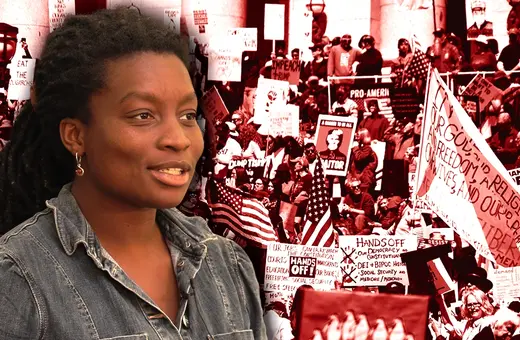“It’s the newspapers I can’t stand”
In Tom Stoppard’s play Night and Day, one character remarks to another: “I’m with you on the free press. It's the newspapers I can't stand.” I don’t think that our discussions of the proper configuration of press freedom have moved very far from this impasse in the thirty years since the play was published. This is evident in the fruitless reiteration of rival claims about supposed speech rights, both by those who think the media – at least the print media – should be self-regulating, and that anything else will lead to censorship, and by those who think that the media – including the print media – should be restricted or regulated in various ways.
At present those who oppose regulation are particularly keen to counter any claims that any right to privacy should receive legal or regulatory protection at the expense of media freedom. For example, Paul Dacre has claimed robustly, but with little argument, that those who seek to use regulation to secure greater respect for privacy are enemies of press freedom, in thrall to an establishment “whose hatred of mass selling papers has transmogrified into a hatred of self-regulation itself”. Others insist that we need to respect rights to privacy even if this means that we have to remove some of the privileges of self-regulation from the media, as they have been removed from other institutions and professions across the last thirty years: a change enthusiastically supported by most of the media. The debate is confused by the fact that both sides claim to champion “independent regulation”, by which they mean entirely different things.
In my view, unargued appeals to the (supposed) rights of a free press, or (supposed) rights to privacy, or other (supposed) speech rights get us precisely nowhere. They don’t show whether adequate self-regulation is possible, or desirable, or whether it is better than other forms of regulation, and they don’t show which forms of regulation are compatible with which configurations of press freedom. Nor do they show how the claims of privacy and press freedom are to be dealt with in cases of conflict. If we want a convincing view of press freedom, assertions about rights are not enough.
Yet current debates about speech rights, or supposed speech rights, seldom go beyond assertions about those (supposed) rights. Unsurprisingly they provide a poor basis for thinking about press freedom. The various rights appealed to are indeterminate, and reasons for giving more weight to one rather than another are not articulated. In these inconclusive debates, speech rights are variously taken to include freedom of speech, freedom of expression and freedom of the press, flanked by more specific speech rights such as freedom of information, rights to know (occasionally exotic rights not to know), data protection and privacy rights, and rights intended to protect specific sorts of speech, such as freedom of worship, artistic freedom or academic freedom. However, this comforting rhetoric of rights does not show which of these supposed speech rights matters most, let alone which matters most in specific situations.
Disputes about the proper boundary between rights to freedom of expression and to privacy illustrate the difficulty of resolving issues by appealing to the speech rights that are proclaimed as Human Rights. Both rights are proclaimed both in the 1948 Universal declaration of Human Rights (UDHR Articles 12 and 19) and in the 1950 European Convention on Human Rights (ECHR Articles 8 and 10). In ECHR Article 8 assigns everyone a “right to respect for his private and family life, his home and his correspondence”, while Article 10 assigns everyone a “right to freedom of expression [that] shall include freedom to hold opinions and to receive and impart information and ideas without interference by public authority and regardless of frontiers”. Like other Convention rights, rights to privacy and to freedom of expression are hedged with numerous restrictions, listed in the second (and less frequently read) parts of the two Articles. The Convention does not assert unconditional rights, and it does not rank the rights it asserts. Nor do other proclamations and declarations of rights. Comments about the need to “balance” these rights against one another point to a genuine problem, but do nothing to resolve it. Moreover it cannot be resolved by invoking the authority of Declarations, Conventions or Constitutions: conflicts between the claims of freedom of expression and of privacy can’t be settled just by asserting that the former right trumps the latter, or vice versa. Arguments from authority cannot vindicate the authority they invoke.
Any defensible account of press freedom, or of other speech rights, needs rather to draw on the political and philosophical arguments that lie behind the landmark proclamations and declarations. Our reasons for taking certain speech rights seriously is not, after all, that they have been declared or proclaimed, or that they are beloved by parts of the Human Rights movement, or even that they have been incorporated into numerous constitutions or into UK law. Our reasons are rather that certain speech rights are backed by probing and well-explored arguments that have been thought about, criticised and honed in long debates about the nature and needs of liberal and democratic societies. We are, I think, more likely to find adequate arguments for one or another conception of press freedom, and of other speech rights, if we do not ignore those arguments.
The Rights of Journalism
How should we think about press freedom?

5th December 2013
Want to continue reading?
Get unlimited access to insights from the world's leading thinkers.
Browse our subscription plans and subscribe to read more.
Already a subscriber? Log in
Latest Releases




















Join the conversation